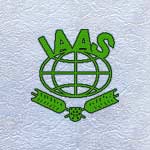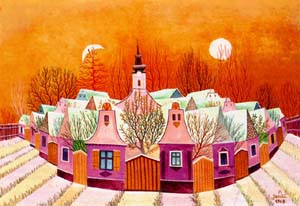

HOME PAGE

WORKSHOP
Philosophy
Programme
Topics
Papers
Authors of
WEB-design
Pesic Milja
ulis@etf.bg.ac.yu
Elezovic Martin
martine@tehnicom.net
Horvat Damir
horvat@drenik.net
INFORMATION & TECHNOLOGY TRANSFER
ON RENEWABLE ENERGY SOURCES FOR SUSTAINABLE AGRICULTURE, FOOD CHAIN AND
HFA '99
Electronic
Educational Workshop
is being presented on 12th July 1999 at the INTERNET

Organizations in Charge:
DERES VECenter at the Faculty
of Agriculture,
Tel. 381 11 199-621,
Fax. 381 11 193-659,
e-mail: deresmt@Eunet.yu
IAAS - Belgrade,
Tel. 381 11 199-621,
Fax. 381 11 193-659,
e-mail iaas.belgrade@beotel.yu
Course Director: Prof.
dr Marija Todorovic
Development and uptake of RENEWABLE ENERGY SOURCES (RES) technologies can contribute to the development of sustainable agricultural production as well as to improve living, health and education conditions world-wide. Sustainable development, health security, environment and social sustainability and RES development and implementation are inextricably linked. The course is organized as an activity within the Yugoslav WSP Project YUNIT - RES. In view of rapid and steady evolution of this field a stimulating program as well as a forum is anticipated.
An open to all on a first come basis workshop - virtual electronic presentation is given here. RES educational program is conducted in English. Depending on participants interest electronic educational program shall be followed by the 5-11 days hands-on workshops in villages in remote mountain and other rural areas as well as in agricultural and agro-industrial organizations. Workshop covers the fundamental principles and practical use of solar, geothermal and biomass energy. The workshop gives participants the elementary interdisciplinary knowledge on the interdependent issues of the environment, energy - nonrenewable and renewable energy sources agriculture/food chain complex, and related indicators and merits relevant for the sustainabiliity. One of fundamental ideas is that it is impossible to reach sustainability without balance between materiality and spirituality, as well as between technology development and cultural and other human values improvement. Instructors - leaders in their fields will bring the most up to date information in all encompassed topics.
Topics /Papers/:
- Information tehnologies
- Energy resources. Energy production, utilization and environmental consequences - greenhouse effect.
- Sustainable agriculture, food chain and development - energy conservation, environmental technologies and RES in agriculture and food processing.
- Renewable energy sources - kinds, natural fluxes. Resources technical and environmental assessment including health aspects and indicators. Technically usable potentials determination.
- RES technologies - passive and active solar thermal and geothermal components and systems - greenhouses water heating, cooling, PV - water pumping, etc.
- RES use for residential, medical-health control, educational, commercial and industrial applications.
- Energy economics and sociology - economic rates, competitiveness. Centralized/distributed energy systems. Research, development, industrialization/commercialization.
- Biomass and Wastes for energy and industry - management and production of biofuels and chemicals.
- Excursion to the harmony. Spirituality and materiality. Introduction to the sustainability. Methodology - to reach sustainability via harmony.
IF